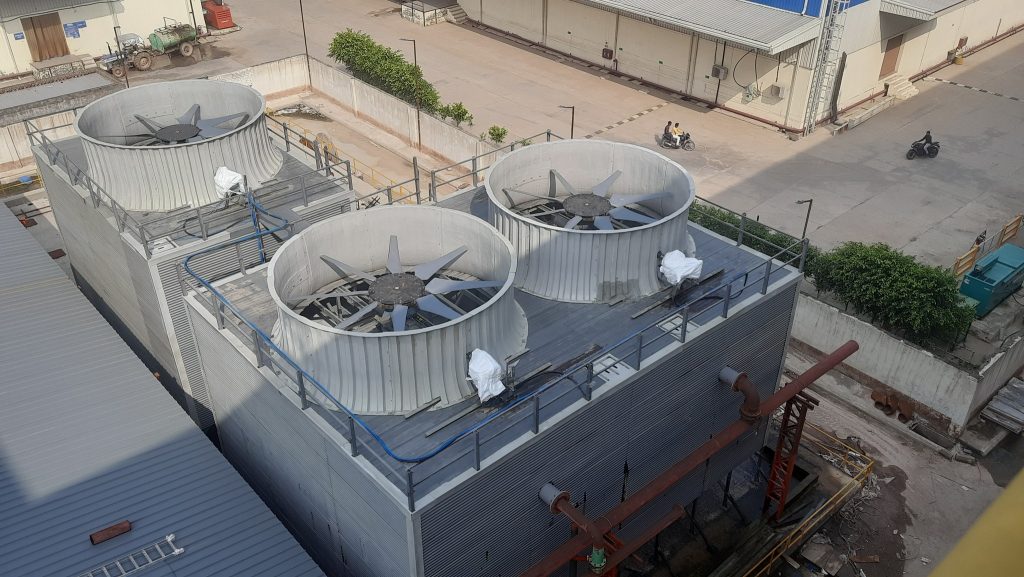Field-Erected Cooling Towers
Field-erected cooling towers (FECTs) are large, custom-built cooling systems assembled on-site, designed for heavy-duty industrial applications requiring high heat rejection capacity (typically 500+ tons of cooling). Unlike factory-assembled packaged towers, these are built piece-by-piece at the installation location, allowing for greater customization and scalability.
Key Features & Design Types
1. Construction & Materials
- Frame:
- Galvanized steel, stainless steel, or concrete.
- Fill Media:
- Film fill (PVC) – High efficiency, prone to fouling.
- Splash fill (wood or plastic) – Less efficient but more fouling-resistant.
- Casing:
- Fiberglass, PVC, or concrete for corrosion resistance.
2. Airflow Configuration
| Type | Description | Pros & Cons |
| Induced Draft | Fan at top pulls air upward | Better air distribution, Higher fan power |
| Forced Draft | Fan at base pushes air in | Easier maintenance, Recirculation risk |
| Crossflow | Air flows horizontally, water falls vertically | Energy-efficient, Larger footprint |
| Counterflow | Air flows upward against falling water | Compact, higher efficiency |
3. Water Distribution System
- Gravity-fed basins (for crossflow).
- Pressurized spray nozzles (for counterflow).
Advantages of Field-Erected Cooling Towers
Customizable – Designed for specific flow rates, temperatures, and space constraints.
High Capacity – Handles thousands of tons of cooling (used in power plants, refineries).
Durable Materials – Resistant to harsh environments (chemical plants, coastal areas).
Long Lifespan – Properly maintained, lasts 20-30+ years.
Disadvantages
Higher Initial Cost – More expensive than packaged towers.
Longer Installation Time – Requires on-site assembly.
Maintenance Complexity – Larger systems need more inspections.
Applications
- Power plants (nuclear, coal, combined-cycle).
- Oil & gas refineries.
- Chemical & petrochemical plants.
- Steel & paper mills.
Maintenance Requirements
- Regular fill media cleaning (to prevent scaling & biofilm).
- Drift eliminator inspection (minimize water loss).
- Structural integrity checks (concrete/steel corrosion).
- Water treatment (anti-scaling, biocides).
Comparison: Field-Erected vs. Packaged Cooling Towers
| Feature | Field-Erected Tower | Packaged Tower |
| Capacity | 500+ tons | < 500 tons |
| Customization | High (site-specific) | Limited (pre-built) |
| Installation Time | Weeks to months | Days to weeks |
| Cost | Higher upfront | Lower upfront |
| Lifespan | 20-30+ years | 15-20 years |
Field-erected cooling towers are industrial-grade solutions for massive heat rejection needs, offering customization, durability, and scalability. They are essential for power plants, refineries, and heavy industries where standard packaged towers are insufficient.
